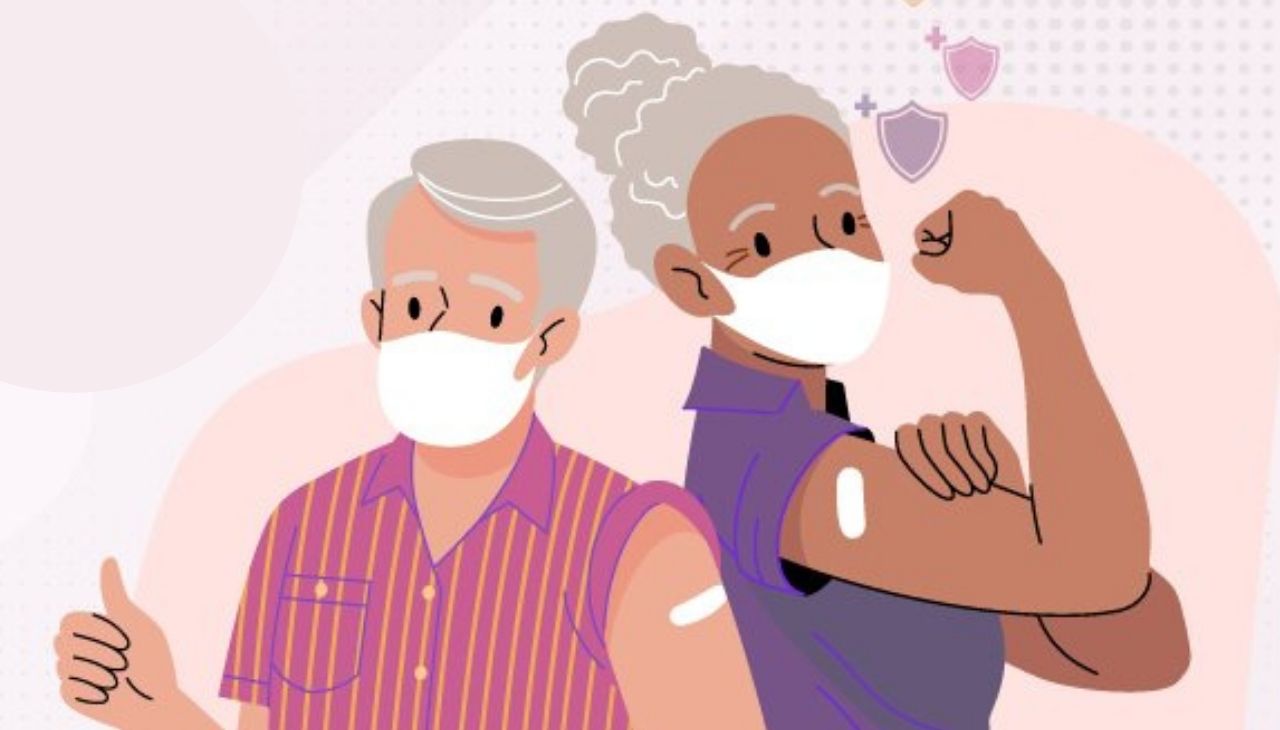
Chile initiated a second COVID booster dose. What does that mean?
Chile began administering a the second booster of the COVID-19 vaccine booster to older adults.
On Monday, Feb. 7, Chile started another COVID-19 vaccination push with second booster dose for people over 55 years of age. The country is currently going through a new wave of infections with daily record figures of over 30,000.
Since Jan. 10, extra doses have been administered to immunocompromised persons, healthcare workers and elderly people in long-term care homes.
Now, those over 55 years of age who have completed six months since their previous injection will also be able to receive a second booster, making Chile one of the first countries in the world to opt for mass use of a second booster dose. Israel was the first to start on Jan. 2.
President of Chile Sebastián Piñera marked the beginning of the new phase of the vaccination process by going to a health center during his vacation in the south of the country and getting his own second booster dose.
"In order to protect ourselves we have followed a strategy from day one which is to anticipate, to go one step ahead so that the coronavirus does not catch us by surprise," Piñera told the press after being vaccinated.
According to information from the Ministry of Health, the second booster dose "increases by 20 times the protection that a person has with respect to another who does not have their full vaccination."
Informe diario #YoMeVacuno✌️ - 7 de febrero
— Ministerio de Salud (@ministeriosalud) February 7, 2022
El Ministerio de Salud informa cifras de personas vacunadas contra #COVID_19.
▶️ https://t.co/uTh4wgnsmE pic.twitter.com/w23aKFBO2A
"Nothing is enough because the virus and, especially Omicron has a contagious capacity that has surprised the whole world and has caused the health systems of the most developed countries in the world to collapse," Piñera emphasized.
RELATED CONTENT
The high vaccination rate in the country helps to ensure that most cases are mild and do not result in hospitalization or death.
A question of sustainability
Despite the efforts of many countries to continue promoting the first and second booster doses, some experts warn that "eternalizing" these injections could be counterproductive.
"We cannot vaccinate the planet every four to six months. It is neither sustainable nor affordable. In the future, we need to target at-risk groups," warned Andrew Pollard, chair of the UK's Joint Committee on Vaccination and Immunization (JCVI) and director of the Oxford Vaccine Group, which helped develop the AstraZeneca COVID vaccine.
Pollard mentioned that more scientific evidence is needed to move forward with more doses.
"Today, less than 10% of people from low-income families have received their first dose, so the idea of a fourth dose worldwide is simply not sensible," he said.
Alfredo Corell, Professor of Immunology at the University of Valladolid, physician and disseminator of the Spanish Society of Immunology, said that using only the data on the date of vaccination and whether or not a complete vaccination schedule has been fulfilled would not be a sufficient indicator for mobility restrictions.
"Measuring the level of protection by the number of vaccine doses given is worthless if natural infections are not considered. Europe only recognizes PCR testing, and in Spain these have not been done. So there are millions of people with an outdated COVID passport," said the Spanish physician.











LEAVE A COMMENT:
Join the discussion! Leave a comment.